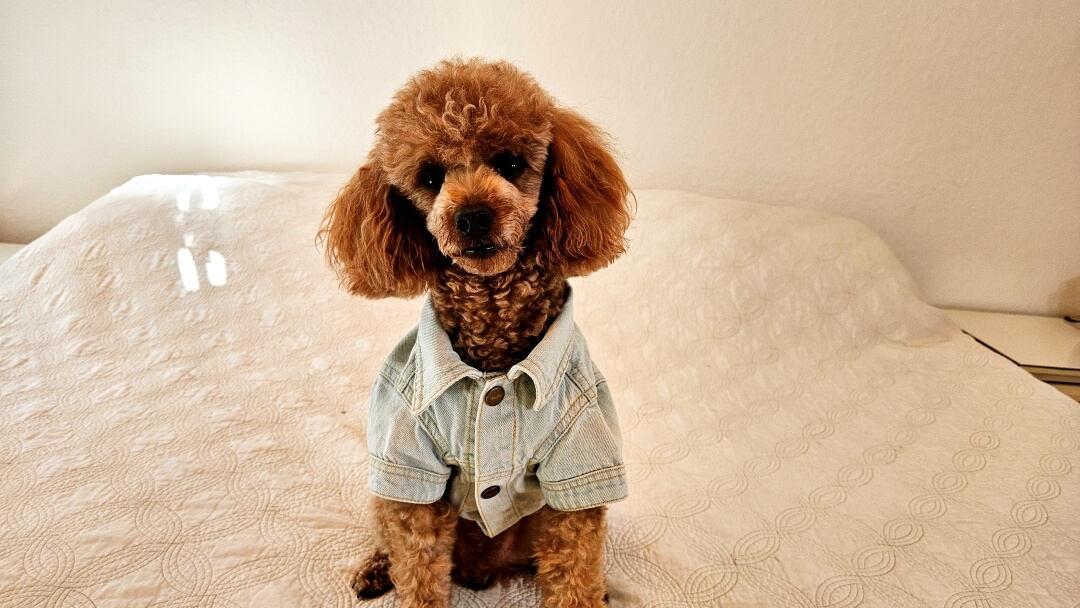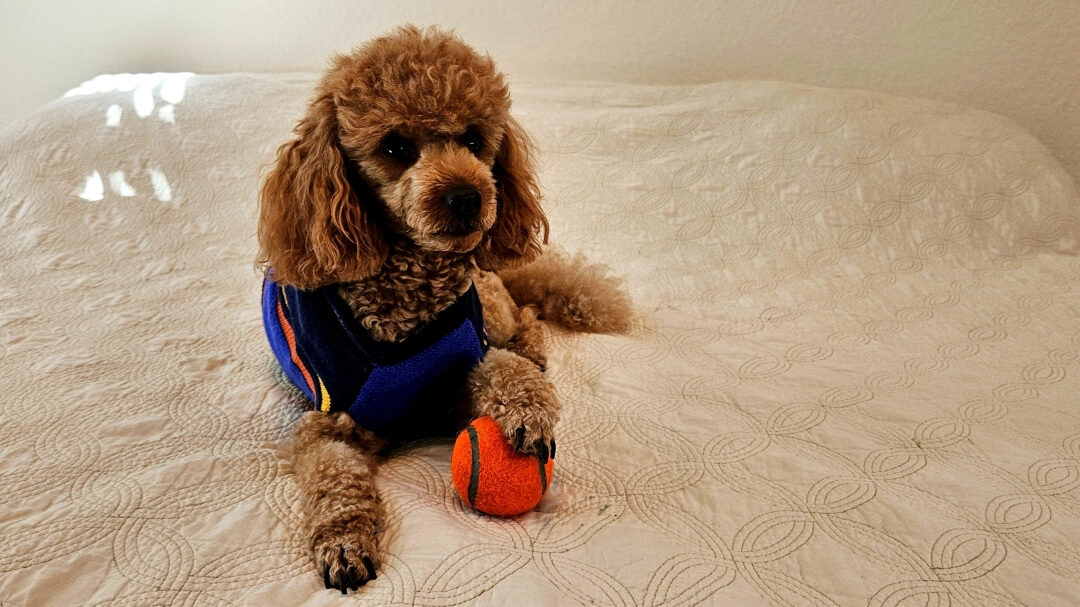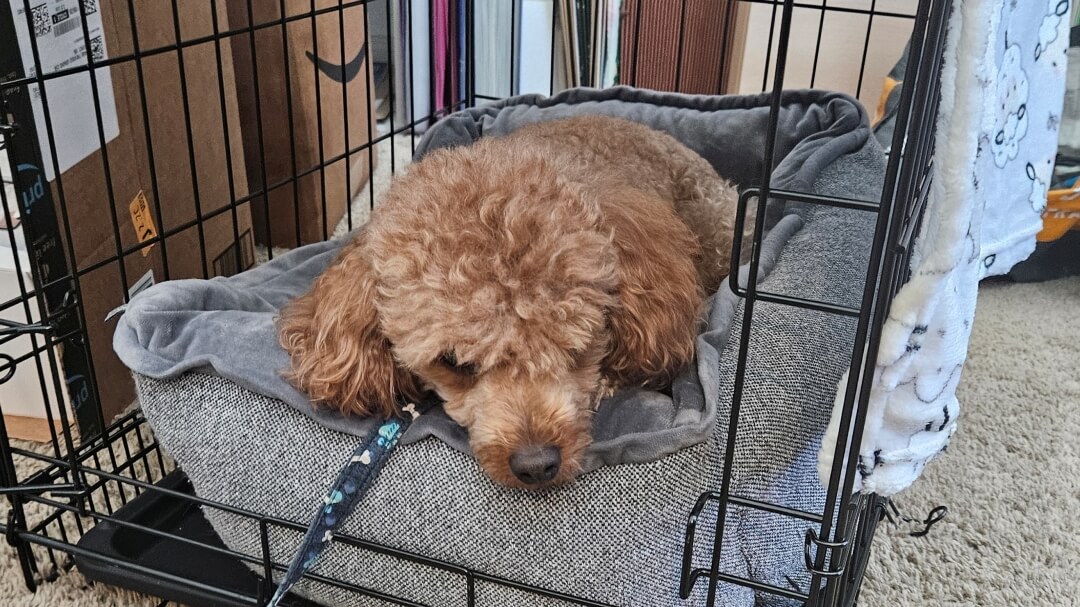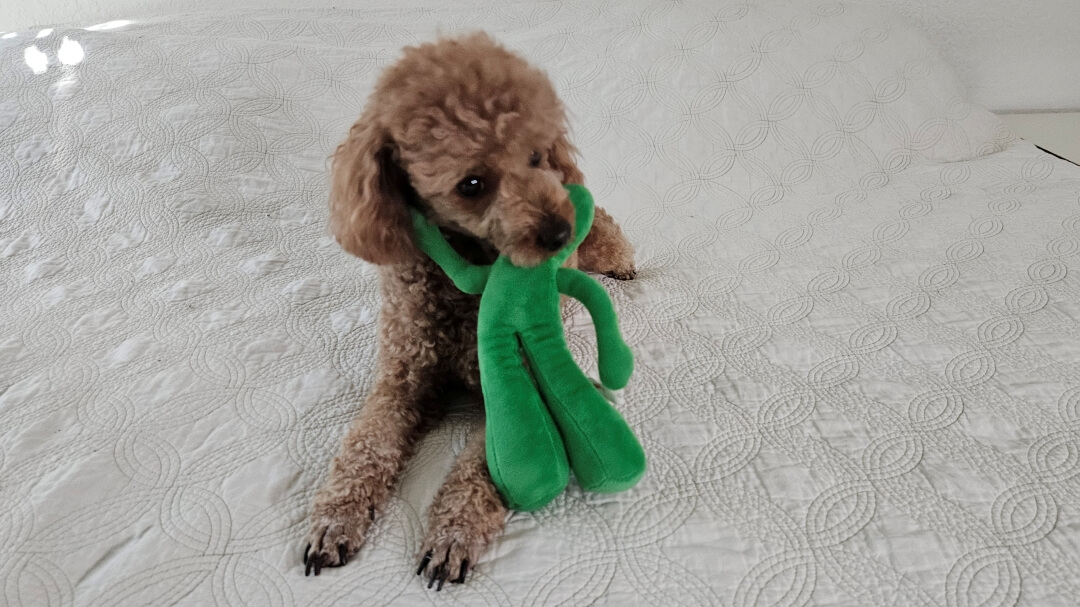About Creating An Environment To Help Your Mini Poodle Thrive
Are you a proud mini poodle owner or an aspiring one? If so, you already know that these intelligent and affectionate companions bring immense joy to our lives. But to ensure your mini poodle thrives, it’s crucial to create an environment tailored to their unique needs.
This guide will guide you through everything you need to know to make your mini poodle’s life as delightful as they make yours.
Understanding Your Mini Poodle’s Unique Needs
Size and Space Requirements
Mini poodles are small but mighty. They typically weigh between 10 to 15 pounds and stand about 11 to 15 inches tall.
Despite their size, they are energetic and require sufficient space to move freely. Whether you live in an apartment or a house, ensure there’s enough room for your poodle to play, explore, and rest.
Dietary Considerations
Proper nutrition is the backbone of your mini poodle’s health. A balanced diet rich in proteins, fats, and carbohydrates is essential. Opt for high-quality dog food that meets these requirements.
It’s also important to maintain a consistent feeding schedule, typically two meals a day, to support their metabolism and energy levels.
Grooming and Health Care
Mini poodles have a curly coat that requires regular grooming to prevent matting and tangling. Brush their coat at least three times a week and schedule professional grooming every 6 to 8 weeks.
Regular dental care, nail trimming, and ear cleaning are also vital. Stay vigilant for any signs of health issues and consult your vet regularly.

Creating a Comfortable Living Space
Choosing the Right Bed, Toys, and Accessories
Your mini poodle deserves a cozy bed that offers both comfort and support. Opt for a bed with a washable cover and adequate padding.
Invest in a variety of toys to keep them entertained—chew toys, puzzle toys, and plush toys are excellent choices. Don’t forget essentials like food and water bowls, preferably stainless steel ones, as they are durable and easy to clean.
Setting Up Poodle-Friendly Play Areas
Designate specific areas in your home for play and relaxation. Use baby gates to create safe zones where your mini poodle can play without getting into trouble. Ensure these areas are free from hazards like electrical cords or small objects they could swallow.
Pet-Proofing Your Home
Pet-proofing your home is crucial for your mini poodle’s safety. Secure loose wires, keep toxic plants out of reach, and store harmful chemicals and foods in locked cabinets. Consider using non-slip rugs to prevent accidents, especially if your home has hardwood floors.

Mental and Physical Stimulation
The Importance of Exercise and Mental Stimulation
Mini poodles are highly intelligent and active dogs. They need both physical and mental stimulation to stay happy and healthy.
Regular exercise, such as daily walks and play sessions, is essential. Mental stimulation can be provided through puzzle toys, interactive games, and training exercises.
Fun Activities and Games
Engage your mini poodle with activities like fetch, tug-of-war, and agility courses. These not only provide physical exercise but also strengthen your bond.
Hide-and-seek games and teaching new tricks are excellent ways to challenge their minds.
Training and Socialization
Training is crucial for a well-behaved mini poodle. Start with basic commands like ‘sit,‘ ‘stay,’ and ‘come.‘
Socialization is equally important; expose your poodle to different environments, people, and other dogs to build confidence and reduce anxiety.
Establishing a Routine
The Benefits of a Consistent Schedule
A consistent routine helps your mini poodle feel secure and reduces stress. Regular feeding, exercise, and sleep schedules contribute to their overall well-being. Routines also make it easier to identify any changes in behavior or health.

Sample Daily Routines
Consider a daily schedule that includes morning exercise, meal times, designated play and training sessions, and evening relaxation. For example:
- Morning: Walk and breakfast.
- Afternoon: Playtime and lunch.
- Evening: Training session, dinner, and a final walk.
Maintaining Flexibility
While routines are beneficial, it’s also important to maintain some flexibility. Life can be unpredictable, and your mini poodle needs to adapt to changes without becoming stressed.
Monitoring and Adapting
Signs Your Mini Poodle Is Thriving
A thriving mini poodle is active, playful, and has a healthy appetite. Their coat should be shiny, and they should maintain a healthy weight. Regular vet check-ups will help ensure they are in good health.

Recognizing Stress or Discomfort
Signs of stress or discomfort in mini poodles include excessive barking, chewing, or scratching, changes in appetite, and lethargy.
If you notice any of these signs, consult your vet to rule out any medical issues and adjust their environment as needed.
Importance of Regular Vet Check-Ups
Regular vet check-ups are essential to monitor your mini poodle’s health. Vaccinations, dental cleanings, and routine blood tests help in early detection of potential health issues, ensuring your poodle stays healthy and happy.
Conclusion
Creating a nurturing environment for your mini poodle is a rewarding endeavor that pays off in countless ways. By understanding their unique needs, providing a comfortable living space, ensuring mental and physical stimulation, establishing a consistent routine, and monitoring their well-being, you can ensure your mini poodle thrives.
Remember, your mini poodle relies on you for their happiness and health. Continuously evaluate and improve their living conditions to keep them content and healthy. We encourage you to share your own tips and experiences in the comments below.
Let’s build a community of poodle lovers dedicated to providing the best care for our furry friends!










